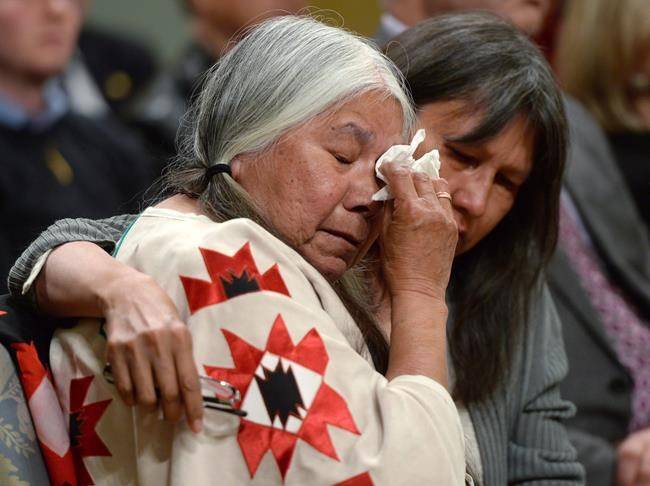Sept. 30 might become a new statutory holiday commemorating victims of residential schools.
The House of Commons heritage committee approved a measure Tuesday to make the last day of September a National Truth and Reconciliation Day. That date is already used as an informal occasion to commemorate the experiences of residential-school students, called Orange Shirt Day.
It’s called that in memory of a piece of a clothing then-six-year-old Phyllis Webstad had taken from her on her first day at a residential school in 1973.
“We picked Sept. 30 because September was the time when children were taken away from their homes,” she told the committee during a previous session, with the specific day chosen to give teachers time to tell modern children the history of the schools.
The heritage committee added the new federal holiday into NDP MP Georgina Jolibois’ Bill C-369, which creates a National Indigenous Peoples’ Day on June 21. It has been meeting for the past few months to discuss the bill, hearing testimony from survivors and Indigenous leaders.
Both the Native Women’s Association of Canada and the Inuit Tapiriit Kanatami, representing 60,000 Inuit people across Canada, expressed support for two separate dates.
“Combining a day of celebration with a day of reconciliation, in our view, is inappropriate and disrespectful,” Virginia Lomax, a lawyer for NWAC, told the group on Jan. 29.
Liberal MP Randy Boissonnault said Tuesday the additions were in keeping with call to action No. 80 from the Truth and Reconciliation Commission, which seeks a statutory holiday “to honour survivors, their families, and communities, and ensure that public commemoration of the history and legacy of residential schools remains a vital component of the reconciliation process.”
The bill has yet to go to the Commons for a final vote.
Stephen Cook, The Canadian Press



